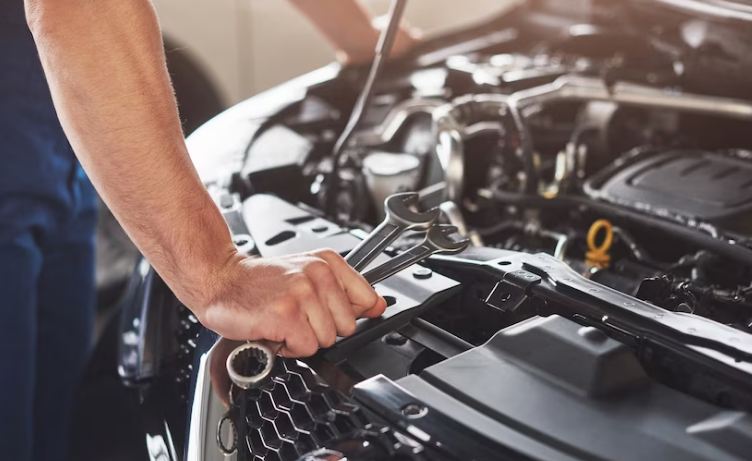Owning a car comes with financial responsibilities, including maintenance and fuel costs. However, with careful planning and smart choices, you can save money on car repairs and fuel while still ensuring your vehicle remains safe and reliable. In this blog, we will provide practical tips for car maintenance on a budget, helping you keep your car in good condition without breaking the bank.
1. Follow the Manufacturer’s Maintenance Schedule
Sticking to the manufacturer’s recommended maintenance schedule is crucial for preventing costly repairs down the road. Regularly scheduled maintenance, such as oil changes, air filter replacements, and tire rotations, helps prolong the life of your car and maintains its optimal performance. By following the recommended maintenance intervals, you can identify and address potential issues before they escalate into more expensive problems.
2. DIY Basic Maintenance
While some car repairs require professional expertise, there are several basic maintenance tasks you can learn to do yourself. Simple tasks like replacing wiper blades, checking and topping up fluids, and replacing air filters can easily be done at home with basic tools. Learning these skills can save you money on labor costs and give you a better understanding of your car’s needs.
3. Compare Repair Estimates
When faced with car repairs, it’s important to shop around and compare estimates from different repair shops. Get quotes from multiple mechanics and ask for a breakdown of the costs. Be cautious of significantly low estimates, as they may indicate low-quality parts or subpar workmanship. Look for reputable mechanics who offer fair prices and quality service.
4. Consider Used or Aftermarket Parts
When replacing parts in your car, consider using used or aftermarket options instead of brand-new OEM (Original Equipment Manufacturer) parts. Used parts can be sourced from reputable salvage yards, while aftermarket parts are manufactured by companies other than the original car manufacturer. Both options are generally more affordable than OEM parts but can still provide the necessary quality and functionality.
5. Maintain Proper Tire Inflation
Keeping your tires properly inflated can extend their lifespan and improve fuel efficiency. Underinflated tires increase rolling resistance, causing your car to work harder and consume more fuel. Regularly check your tire pressure using a gauge and inflate them to the recommended levels specified in your car’s manual. Proper tire inflation not only saves you money on fuel but also ensures optimal handling and safety.
6. Practice Fuel-Efficient Driving Habits
Adopting fuel-efficient driving habits can significantly reduce your fuel consumption and save you money. Avoid aggressive acceleration and braking, as these actions waste fuel. Maintain a steady speed on the highways and use cruise control when appropriate. Minimize idling and plan your routes to avoid traffic congestion. By driving responsibly and efficiently, you can maximize your fuel efficiency and reduce fuel expenses.
7. Compare Fuel Prices
Fuel prices can vary significantly between gas stations, so it’s worth comparing prices in your area. Use smartphone apps or websites that provide real-time fuel price information to find the most affordable options. Consider joining loyalty programs or using cashback credit cards that offer discounts or rewards on fuel purchases.
8. Carpool or Use Alternative Transportation
If possible, explore carpooling options with colleagues, neighbors, or friends who commute in the same direction. Sharing rides not only reduces fuel expenses but also minimizes wear and tear on your vehicle. Additionally, consider using alternative transportation methods like public transit, biking, or walking for shorter distances. These alternatives can help you save money on fuel and parking fees while promoting a more sustainable lifestyle.
9. Prioritize Preventive Maintenance
Investing in preventive maintenance can save you money by avoiding major repairs in the future. Regularly inspect your car for signs of wear and address any issues promptly. Take care of small problems before they escalate into more expensive repairs. It’s also essential to stay up to date with oil changes, filter replacements, and other routine maintenance tasks. By prioritizing preventive maintenance, you can keep your car in good condition and minimize unexpected expenses.
10. Keep a Maintenance and Fuel Expense Record
Maintaining a record of your car’s maintenance and fuel expenses can help you track costs and identify opportunities for further savings. Keep a log of all repairs, maintenance tasks, and fuel purchases, along with the associated expenses. Analyze the data periodically to identify any patterns or areas where you can cut costs. This record can also serve as a reference when selling or trading in your car in the future.
Conclusion
Car maintenance on a budget requires proactive planning, DIY efforts, and smart choices. By following the manufacturer’s maintenance schedule, comparing repair estimates, and considering used or aftermarket parts, you can save money on repairs. Maintaining proper tire inflation, practicing fuel-efficient driving habits, and comparing fuel prices can significantly reduce your fuel expenses. Remember, preventive maintenance, record keeping, and responsible driving contribute to long-term savings and the overall longevity of your vehicle. By implementing these tips, you can keep your car running smoothly while keeping your budget intact.
Remember, taking care of your car doesn’t have to be expensive. With the right approach and a little extra effort, you can maintain your vehicle’s performance and save money along the way.





